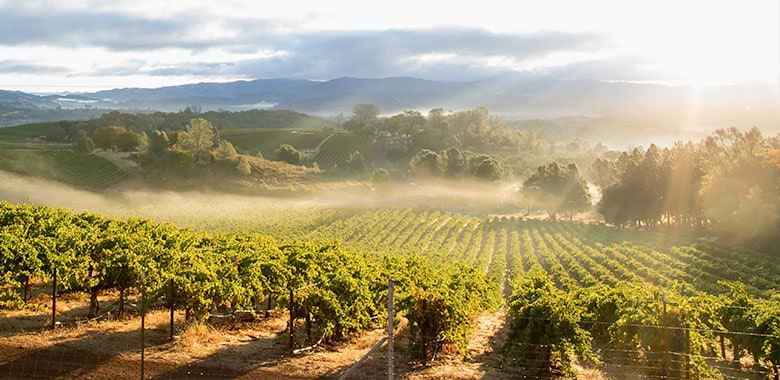
Wine
Learn from the experts... terroir
The notion of terroir has helped winemakers and wine lovers alike to identify and understand the many factors that give a wine its distinct regionality.
Terroir (pronounced ter-wär) is the combination of factors including soil, climate and sunlight that gives wine grapes their distinctive character. Every aspect of the grapevine’s environment influences the style and quality of fruit production, and therefore the wine it produces. But what does this mean to those in the wine industry?
To find out more about this quite complex synergy, we posed an important question to a few of our good friends who are experts in winemaking to uncover how terroir impacts the wines they produce – Q. What role does terroir play in winemaking?
ADRIAN SPARKS
GENERAL MANAGER & HEAD WINEMAKER AT MOUNT PLEASANT
A. Terroir is what defines a wine. When you remove the winemaker from the equation, terroir provides 70% to 80% of the final wine quality – as long as the vines are nurtured and well cared for.
The site of a vineyard is crucial to growing great vines. Every factor from row orientation, canopy management, aspect of the vineyard, soil type and vineyard management can be defined by terroir. All of these combine to provide the terroir, and long term, a great site for growing vines.
When we speak of the great vineyards of the world, we are really talking about a specific site on that vineyard. A site that has stood out, stood the test of time and one that delivers year on year brilliant fruit which defines that specific terroir. You could have two blocks right next two each other with the same variety, same everything, but ultimately, they will be subtly different due to their terroir. Could one block see a little more shade in the afternoon sun? Is one slightly more protected from winds than the other? Was one block used for a different purpose prior to planting? All these factors influence the end wine – a direct result of terroir.
ALEXIA ROBERTS
WINEMAKER AT PENNY’S HILL
A. Terroir is a genuine expression of the vineyard’s identity and plays a crucial role in shaping the unique characteristics of a wine. As a winemaker, I believe it’s best to harness the nuances of terroir by intimately knowing and understanding the vineyard site, its climate, aspect, soil and elevation. Terroir can dictate the fruit weight; tannin content and structure of a wine and you can use this knowledge to build your desired wine style.
At Penny’s Hill, I love to produce wines with vibrant aromatics and fine, minerally tannin profiles both of which stem from the terroir of the vineyard and are nurtured through the winery with a delicate touch.
JASPER MARIAS
WINEMAKER AT RIVERDALE ESTATE
A. Terroir is crucial to winemaking decisions and gives each wine its sense of place and fingerprint. My decision making on how I deal with ferments on both red and white wines starts with the microclimate that the fruit comes from.
All of our fruit is grown on one estate with very small differences in level above sea and has close relation to the ocean which gives us a strong maritime influence. We see major differences in how similar clones of Pinot Noir grow vastly different fruit in certain areas due to the terroir or microclimate of specific blocks. For instance, we have water-front blocks sitting on duplex soils with light powdery clay that are heavily influenced by the direct sea breeze – these blocks produce pretty and perfumed wines that don’t warrant large amounts of heavily toasted oak, so they get treated with that in mind. On the other hand, I have the same clones planted 800m from the bay in a more sheltered area which retains more heat – the wines produced from these vines are more robust and earthy and can be treated with heavier toasted oak and new oak.
Terroir plays a crucial part in winemaking especially with Pinot Noir and Chardonnay in cool climate regions and needs to be well understood by the winemaker to achieve the best possible wines. It all starts with positioning and the soil!
What to learn more?
For more interesting information about terroir, check out Jenni Port’s article Tasting Shiraz Across Australia in which she explores the unique terroir tastes of six of Australia’s most distinctive Shiraz regions.